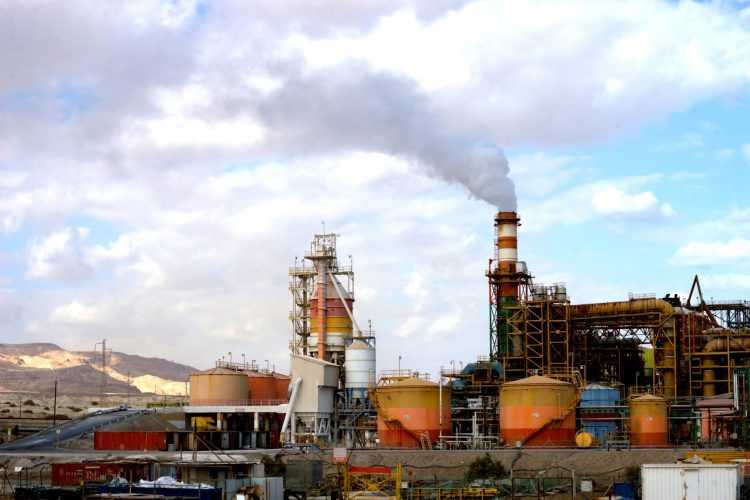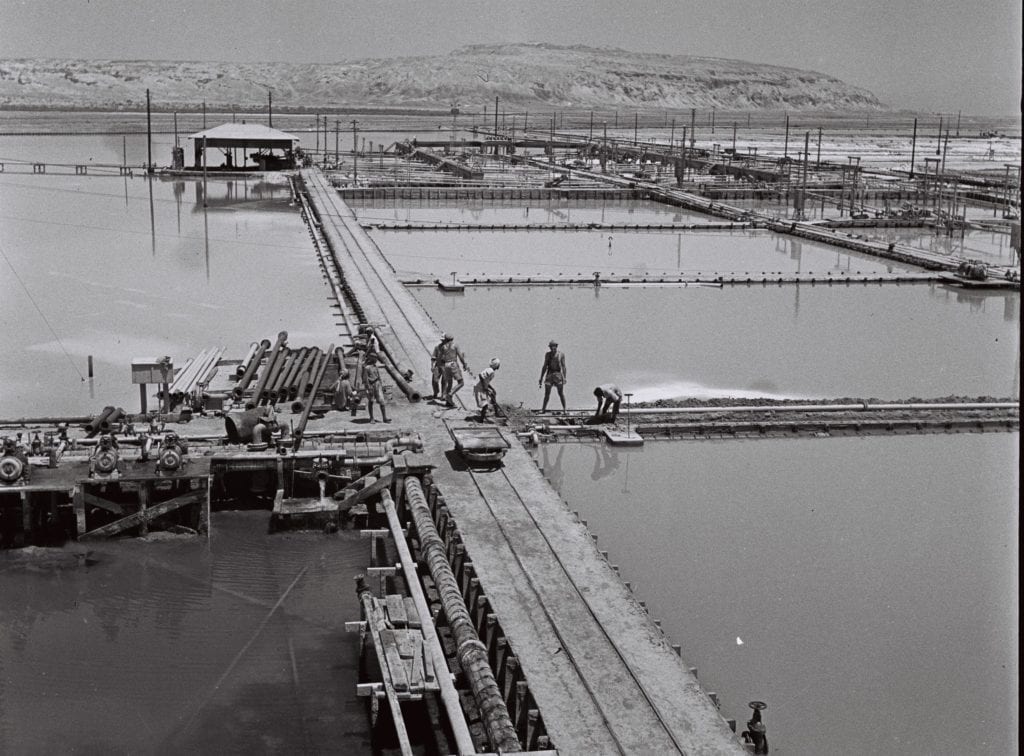The Dead Sea Works is one of the world’s largest producers and suppliers of potash products, including potassium chloride. Due to the location of the plant, it operates at one of the lowest points in the world.
Originally established in 1929, the company has undergone many changes, including a name change. Here is a closer look at its history and significance to the country.
Origins of the Dead Sea Works Plant
The company was established in 1929 by Moshe Novomeysky as the Potash Company of Israel. Novomeysky was an Israeli engineer, originally from Siberia, and one of the first businessmen issued a tender to mine the Dead Sea area.
After the acceptance of his application to mine around the Dead Sea, Novomeysky founded his mining company, with the primary production facility located on the northern shore of the sea. A second plant was constructed in 1934, located to the south.
The Potash Company of Israel was founded during British rule and faced fierce competition. However, the company thrived and eventually employed hundreds of workers during the Arab-Israeli War.
In 1948, Israel’s provisional government began reviewing the operations of the mining company, eventually expelling all British interests. The northern plant was destroyed during the war, while the southern plant was nationalized by the Israeli government.
In 1953, the State of Israel re-established the plant as the Dead Sea Works Ltd. It is a subsidiary of Israel Chemicals Ltd (ICL) and directly contributes to the nation’s economy through its large mining operations.
The Dead Sea Works Plant Mines Valuable Minerals
The plant mines for Dead Sea mineral products, including potash. Potash includes salts that contain potassium in water-soluble form.
The most common potash product is potassium chloride, commonly used in fertilizers. Potassium chloride is also found in various medicines, chemical feedstock, and as a substitute for salt in food.
Dead Sea Works potassium chloride accounts for 11% of the world’s potash production.
Along with potassium chloride, Dead Sea magnesium chloride is a major export for the company. Magnesium chloride is a common ingredient for industrial salts, bath salts, and deicers.
Implementing Innovative Mining Methods
Dead Sea Works is at the forefront of the mining industry, employing the most efficient technologies to extract resources from the Earth. This includes the use of solar evaporation mining.
Dead Sea evaporation ponds are artificial ponds used to extract minerals from seawater using the power of the sun. The sunlight evaporates the water in the shallow ponds and exposes the contents to ambient temperatures, allowing for the efficient extraction of salt and other minerals.
Each pond is only two meters deep and measures about six square kilometers in size. The ponds are separated into salt ponds and carnallite ponds. Carnallite ponds are used to produce potash products.
Thanks to these ponds, Dead Sea Works continually increases its production. The Dead Sea Works plant now produces 3.3 million tons of potash each year, along with 2 million tons produced by plants in Britain and Spain.
The Dead Sea provides an abundance of resources. Experts predict that the seawater contains an almost unlimited supply of potash products. This allows the company to keep up with the increasing demand for potash, which is growing at 2% to 3% annually.
Where Is the Dead Sea Works Plant Located?
The Dead Sea Works plant is in Sodom, located at the southern basin of the Dead Sea. It is about a two-hour drive from Jerusalem if you travel along the coast.
The plant is east of the mountains of Sodom. While you cannot enter the plant, you can drive to the cliffs of the mountains, which provide an observation point that overlooks the Dead Sea and the evaporation ponds.
Frequently Asked Questions about Dead Sea Minerals
- Q: What minerals are in the Dead Sea?
A: The Dead Sea is renowned for its rich mineral content, which includes magnesium, sodium, calcium, potassium, bromide, and various other beneficial salts. - Q: Can I buy Dead Sea mineral products when visiting the Dead Sea?
A: Definitely! There are plenty of shops and spas around the Dead Sea where you can find a variety of these unique products. It’s a wonderful opportunity to get your skincare goodies straight from the source. Happy shopping! - Q: How are the minerals in the Dead Sea used in skincare products?
A: The minerals from the Dead Sea are often incorporated into skincare products due to their potential beneficial effects on skin health. They can be found in a wide range of products, including facial masks, body scrubs, bath salts, and lotions.
{
“@context”: “https://schema.org”,
“@type”: “FAQPage”,
“mainEntity”: [
{
“@type”: “Question”,
“name”: “Q: What minerals are in the Dead Sea?”,
“acceptedAnswer”: {
“@type”: “Answer”,
“text”: “A: The Dead Sea is renowned for its rich mineral content, which includes magnesium, sodium, calcium, potassium, bromide, and various other beneficial salts.”
}
},
{
“@type”: “Question”,
“name”: “Q: Can I buy Dead Sea mineral products when visiting the Dead Sea?”,
“acceptedAnswer”: {
“@type”: “Answer”,
“text”: “A: Definitely! There are plenty of shops and spas around the Dead Sea where you can find a variety of these unique products. It’s a wonderful opportunity to get your skincare goodies straight from the source. Happy shopping!”
}
},
{
“@type”: “Question”,
“name”: “Q: How are the minerals in the Dead Sea used in skincare products?”,
“acceptedAnswer”: {
“@type”: “Answer”,
“text”: “A: The minerals from the Dead Sea are often incorporated into skincare products due to their potential beneficial effects on skin health. They can be found in a wide range of products, including facial masks, body scrubs, bath salts, and lotions.”
}
}
]
}




